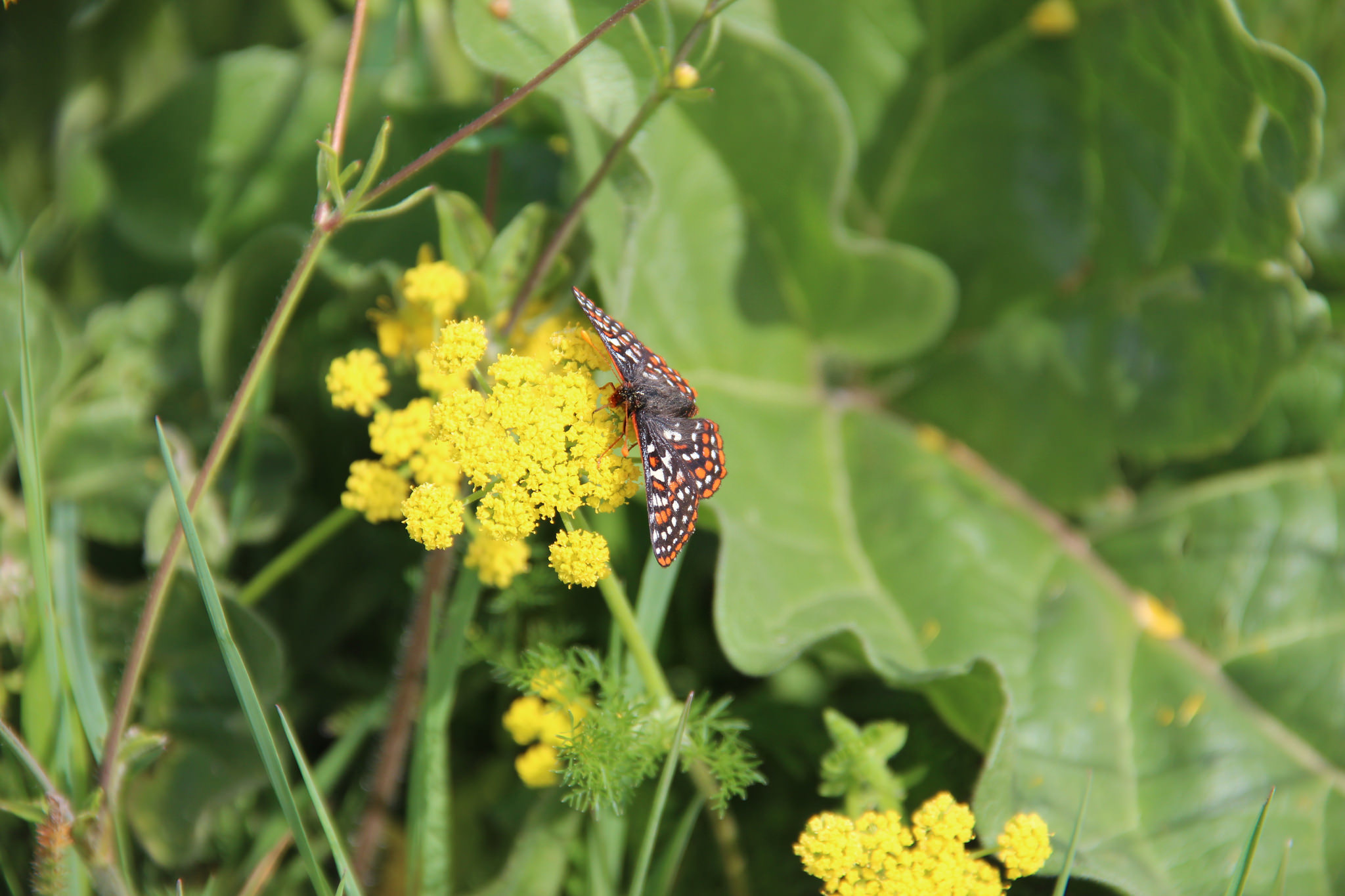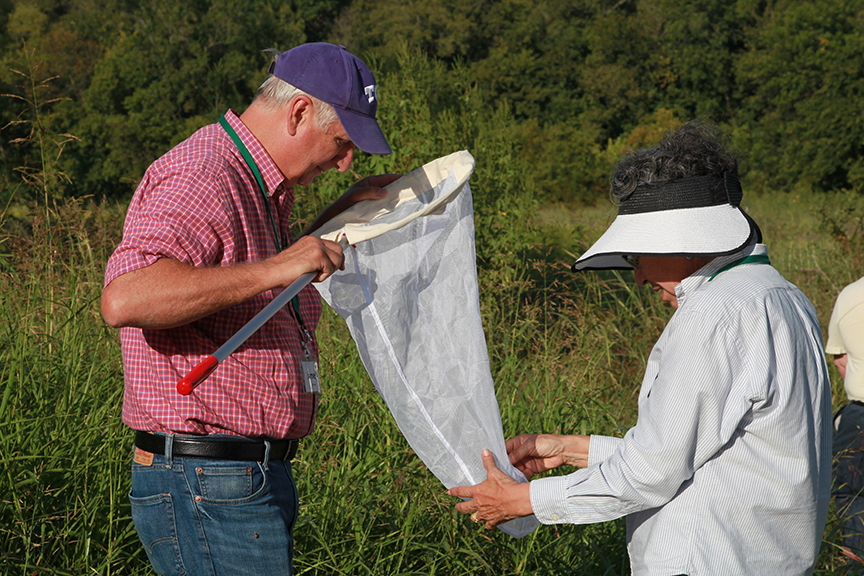Calendar

 For nearly six centuries, scientists have been documenting the plants and fungi of the world through herbaria. The basic preparation of specimens that are housed in an herbarium has changed relatively little over time. But the invention of this simple technology was a key innovation in transforming the study of these organisms from a minor subdiscipline of medicine into an independent scientific endeavor. In this webinar based on her newly published book, Herbarium: The Quest to Preserve and Classify the World’s Plants, Dr. Barbara Thiers discusses the intricate history of herbaria and how these biological collections have allowed scientists to characterize and understand plant and fungi diversity on a global scale.
For nearly six centuries, scientists have been documenting the plants and fungi of the world through herbaria. The basic preparation of specimens that are housed in an herbarium has changed relatively little over time. But the invention of this simple technology was a key innovation in transforming the study of these organisms from a minor subdiscipline of medicine into an independent scientific endeavor. In this webinar based on her newly published book, Herbarium: The Quest to Preserve and Classify the World’s Plants, Dr. Barbara Thiers discusses the intricate history of herbaria and how these biological collections have allowed scientists to characterize and understand plant and fungi diversity on a global scale.
The collectors and curators responsible for the approximately 3,300 herbaria Texas Master Naturalists – Heartwood Chapter have today (holding an estimated 393 million specimens) are diverse in national heritage, education, and social status. The geographic, taxonomic, and temporal breadth of their legacy allows us to understand the diversity of the world’s vegetation in the past and present, and to predict its future. Herbaria still serve their original function—to document the occurrence of plants and fungi and provide a reference for their identification and characterization. However, recent technological advances that facilitate the study of life at both the molecular level and on a global scale can be applied to herbarium specimens to help address some of the most critical problems we face today. New ways of sharing information allow herbaria to demonstrate the importance of plants and healthy ecosystems to an audience far beyond the scientific community.
 Few choices are available when it comes to the “hard to recycle itemsâ€. In the last few years some innovative recycling companies have promised to divert these plastics from the landfill and into new products.Â
Few choices are available when it comes to the “hard to recycle itemsâ€. In the last few years some innovative recycling companies have promised to divert these plastics from the landfill and into new products.Â
Â
Consumers and corporations are curious: How’s it now possible to recycle these previously unrecyclable items? What’s really happening? Can we trust that all the source separating and additional costs are worth it? Transparency is needed and this webinar will be a good start.
Â
TerraCycle and Avangard Innovative will provide insight into their respective processes, including how contamination and residual waste items are handled. They’ll answer questions specific to their programs.
 the TMN State Office will offer an hour-long virtual advanced training event (sometimes including some fantastic new and returning guest speakers).
the TMN State Office will offer an hour-long virtual advanced training event (sometimes including some fantastic new and returning guest speakers).
One of the great things about TMN Tuesdays is the fact that they count for AT, even if you view them after the fact. So, if you didn’t get to see them the first time around, there’s still time to view them and have them count for AT!
For more information:Â https://txmn.tamu.edu/tmntuesdays/
Each workshop will meet the following goals:
- Introduce educators to the materials and philosophy of TAS.
- Provide a sampling of field activities for coastal and inland aquatic habitats.
- Make connections to local water and wildlife issues to help individuals become aware of their place in the environment and their actions to protect it.
- Demonstrate field interpretive techniques used in TAS field activities and TAS trunk equipment inventory.
Location:Â Zoom; link sent after registration
Register:
- Email which Session you prefer to Elise.Pullen@tpwd.texas.gov
- Must attend both days
- Maximum 30 participants per training
Prior to workshop:
- Download the Texas Aquatic Science Teacher Guide
- To receive the password to access the TAS Teacher Guided, please enter your information on the Access Request Form (TMN put your Chapter for Educational Facility).
 Texas Master Naturalists – Heartwood Chapter are having their second Plant Party Training on Feb. 24th from 10-11:30 am. The theme this time is “Talking Ecology†where Texas Master Naturalists – Heartwood Chapter will have 5, 15-minute presentation prepared on Ecological Site Descriptions, Using Plant as Indicator Species, Converting Introduced Grass Fields to Natives, and How Weather Changes Influence Ecology. It is really going to be an information-thick event, plus there are door prizes!
Texas Master Naturalists – Heartwood Chapter are having their second Plant Party Training on Feb. 24th from 10-11:30 am. The theme this time is “Talking Ecology†where Texas Master Naturalists – Heartwood Chapter will have 5, 15-minute presentation prepared on Ecological Site Descriptions, Using Plant as Indicator Species, Converting Introduced Grass Fields to Natives, and How Weather Changes Influence Ecology. It is really going to be an information-thick event, plus there are door prizes!
Again, these Plant Party quarterly webinar trainings are a collaboration between Extension, USDA-NRCS, and TPWD. They are offered FREE in an attempt to provide an easy learning opportunity for our employees and volunteers, although clientele are welcome.
 If you are interested in joining this committee, please email info@bayouland.org
If you are interested in joining this committee, please email info@bayouland.org
 Cost: $125; FREE for funders and collaborating NGOs.
Cost: $125; FREE for funders and collaborating NGOs.
$75 for NAHMMA and STAR members.
For more information and/or receive the discount, please email jordan@nsaction.us
RETURN & REFUND POLICY
No returns or refunds.
On the Second Tuesday of each month at the noon hour (12PM Central Standard Time), the TMN State Office will offer an hour-long virtual advanced training event (sometimes including some fantastic new and returning guest speakers).
 Over the course of 8 weeks and over 32 instructional hours, you can gain a greater understanding of entomology, integrated pest management in the garden, landscape and home, be able to identify common insects, spiders and arthropods in Texas, learn about butterfly gardening and native pollinators and much more. iNaturalist training, invasive insects to watch in Texas, medical entomology, using dichotomous keys for identification will also be covered.
Over the course of 8 weeks and over 32 instructional hours, you can gain a greater understanding of entomology, integrated pest management in the garden, landscape and home, be able to identify common insects, spiders and arthropods in Texas, learn about butterfly gardening and native pollinators and much more. iNaturalist training, invasive insects to watch in Texas, medical entomology, using dichotomous keys for identification will also be covered.
See the website for more details.